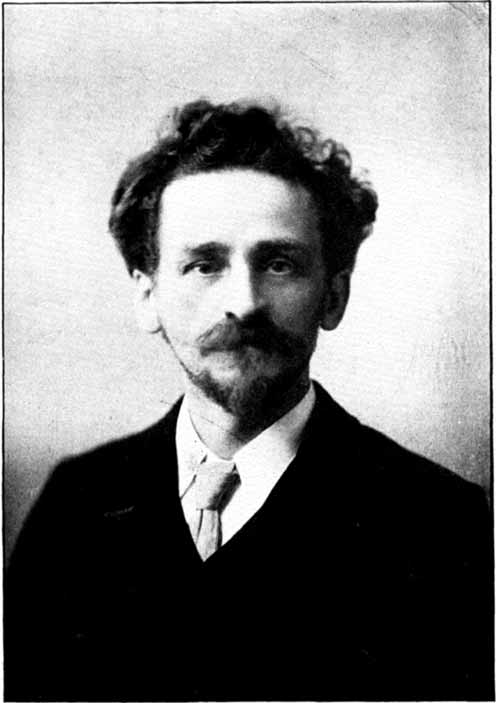Light on life’s Difficulties.
Light on Life’s Changes
THE TENDENCY OF THINGS to advance from a lower to a higher level, and from high to higher still, is universal. The worlds exist in order that beings may experience, and by experiencing, acquire knowledge and increase in wisdom.
Evolution is only another name for progress. It signifies perpetual change, but a purposeful change, a change accompanied by growth. Evolution does not mean the creation of a new being from a being of a different order. It means the modification of beings by experience and change; and such modification is progress.
The fact of change is ever before us.
Nothing can escape it. Plants, animals, and human beings germinate, reach maturity, and pass into decay. Even the lordly suns and their attendant worlds rolling through illimitable spaces, although their life is reckoned in millions of years, at last decay and perish after having passed through innumerable changes. We cannot say of any being or object—”This will remain forever as it is,” for even while we are saying it, the being or object would be undergoing change.
Sadness and suffering accompany this change;
beings mourn for that which has departed, for the things which are lost and gone. Yet in reality change is good, for it is the open door to all achievement, advancement, and perfection.
Mind, as well as matter, is subject to the same change. Every experience, every thought, every deed, changes a person. There is little resemblance between the elderly and their period of childhood and youth.
An eternally fixed, unchangeable being is not known. Such a being may be assumed, but it is a postulate only. It is not within the range of human observation and knowledge. A being not subject to change would be a being outside progress.
There is a teaching which declares that man has a spiritual soul that is eternally pure, eternally unchanged, eternally perfect, and that sinning, suffering, changing man as we see him is an illusion—that, indeed, the spiritual soul is the man, and the other is unreality.
There is another teaching that affirms that man is eternally imperfect, that stainless purity can never be reached, and that perfection is an impossibility, an illusion.
It will be found that these two extremes have no relation to human experience. They are both of the nature of speculative metaphysics which stand in opposition to the facts of life; so much so that the adherents of these two extremes deny the existence of the commonest everyday facts of human experience. That which is assumed is regarded as real; the facts of life are declared to be unreal.
It is well to avoid both these extremes, and find the middle way of human experience. It is well to avoid opinions and speculations of our own or others, it is well to refer to the facts of life. We see that man passes through birth and growth and old age, that he experiences sin, sickness, and death; that he sorrows and suffers, aspires and rejoices; and that he is ever looking forward to greater purity and striving toward perfection. These are not opinions, speculations, or metaphysics—they are universal facts.
If man were already perfect, there would be no need for him to be perfected, and all moral teaching would be useless and ridiculous. Moreover, a perfect being could not be subject to illusion and unreality.
On the other hand, if a man could never attain to purity and perfection, his aspirations and striving would be useless. They would indeed be mockeries; and the heavenly perfection of saintly and divine men and women would have to be belittled and denied.
We see around us sin, sorrow, and suffering; and we see before us, in the lives of the great teachers, the sinless, sorrowless, divine state. Therefore, we know that man is an imperfect being, yet capable of, and destined for, perfection. The divine state toward which he aspires, he will reach. The fact that he so ardently desires it means that he can reach it, even if the fact were not demonstrated in those great ones who have already attained.
Man is not a compound of two beings, one real and perfect, the other unreal and imperfect. He is one and real, and his experiences are real. His imperfection is apparent, and his advancement and progress are also apparent.
The realities of life claim men in spite of their metaphysics, and all come under the same law of change and progress. He who affirms the eternal sinlessness and perfection of man, should not, to be logical and consistent, ever speak of sins and faults, of disease and death; yet he refers to these things as matters to be dealt with. Thus in theory he denies the existence of that which he habitually recognizes in practice.
He also who denies the possibility of perfection should not aspire or strive; yet we find him practicing self-denial and striving ceaselessly toward perfection.
Holding to the theoretical does not absolve one from the inevitable. The teacher of the unreality of sickness, old age, and death is at last caught in the toils of disease, succumbs to age, and disappears in death.
Change is not only inevitable; it is the constant and unvarying law. Without it, everything would remain forever as it is, and there would be neither growth nor progress.
The strenuous struggle of all life is a prophecy of its perfection. The looking upward of all beings is evidence of their ceaseless ascension. Aspirations, ideals, moral aims, while they denote mans imperfection, assuredly point to his future perfection. They are neither unnecessary nor aimless, but are woven into the fabric of things. They belong to the vital essence of the universe.
Whatsoever a man believes or disbelieves, what theories he holds or does not hold, one thing is certain—he is found in the stream of life, and must think and act. To think and act is to experience; and to experience is to change and develop.
That man is conscious of sin means that he can become pure; that he abhors evil signifies that he can reach up to Good; that he is a pilgrim in the land of error assures us, without doubt, that he will at last come to the beautiful city of Truth.



